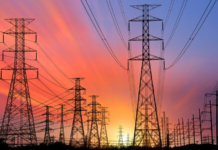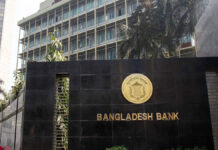Manjurul Ahsan
The government is planning to lower the ceiling on lifeline power consumption from 50 units or kilowatt-hours a month to 30 units that would force poor consumers to pay higher prices for electricity.
The government’s plan, if implemented, would exclude a significant portion of consumers from the benefit making the lifeline tariff meaningless, officials of the power utilities told New Age.
It is part of a greater plan of the government to gradually withdraw subsidy from the power sector, they said.
Some 50 lakh beneficiaries of lifeline tariff now pay Tk 3.33-3.74 per unit which would be increased by up to 6 per cent for a significant portion of the poor consumers who would be excluded from the benefit, according to the current tariff.
The power utilities have suggested a more expensive slab for the excluded consumers which would force them to pay Tk 4.20-4.30 per unit, according to the proposals the utilities have submitted to the Bangladesh Energy Regulatory Commission.
When asked, a Power Development Board official said a greater number of poor people would be excluded from the lifeline umbrella when the utilities like the Rural Electrification Board would increase power supply.
At present, electrical appliances used by the rural consumers remain unutilised most of the time due to frequent and prolonged power cuts, he explained.
Earlier in March 2014, the BERC for the first time slashed the lifeline ceiling from 75 units to 50 units a month.
Officials of power utilities, to justify the government’s desire, reduced the number of electrical appliances to one fan and two compact fluorescent lamps (CFL) from two fans and three CFLs.
They placed the arguments in a series of public hearings hosted by the BERC between Tuesday and Sunday.
The power utilities incorporated the demand in their proposals to increase the retail price of electricity between 17.45 per cent and 25.89 per cent after two state-run authorities had proposed a hike in the bulk price by 18.12 per cent and a 71 per cent rise in the transmission charge.
A decision on the revision of power tariff and ceiling of lifeline consumption is now pending with the BERC.
Experts and representatives from left democratic political parties, during the public hearings, strongly opposed the move saying that the government had turned its back on the common people.
Shamsul Alam, energy expert and adviser to the Consumer Association of Bangladesh, said it seemed the government wanted to shrug off its responsibility of giving subsidy to the poor for improving their living standards.
Ganasanghati Andolan chief coordinator Zonayed Saki said that the government degraded the poor by slashing the level of their power consumption.
The government initiated the move to raise power prices after the BERC increased prices by Tk 0.40 per kilowatt-hour or unit on an average with effect from March 1, 2014.
With the March hike, the Awami League-led government, in its two consecutive terms, persuaded the commission into increasing the retail power prices by 54 per cent, up from Tk 4 a unit to Tk 6.15 on an average, in seven phases, since February 2011.
The commission has also increased the bulk price of electricity by 98.31 per cent — from Tk 2.37 to Tk 4.70 a unit — on an average, in six phases, between February 2011 and September 2012.
Source: New Age









